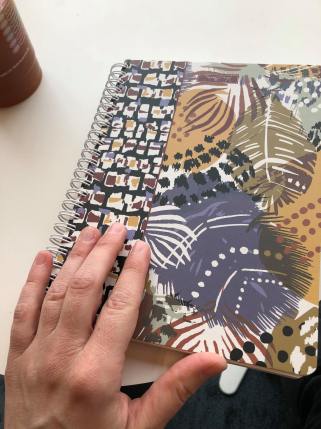
I love lists. Anytime I can make or read a list that helps me organize my ideas or understand someone else’s, I’m happy. I feel a delightful ping throughout my whole body. Lists energize me.
While they can’t tell the whole story, lists serve as useful reminders of what’s important and can inspire deeper conversations.
This is my attempt at such a list as it relates to my improv philosophy.
It’s helped me think about my approach as a performer, a member of an improv team, a teacher, a writer, and an audience member. And I hope it inspires you to create your own philosophy.
What matters to you, what you value, and what you believe affects how you play and create. Here are a few things at the top of my list:
Creativity
Creativity means different things to different people. For me, it’s the hypnotic dance between structure and flexibility. To make an improv scene work, we engage with both to differing degrees, depending on the kind of improv we’re doing.
We “yes, and,” we agree, we listen, and we respond, whether it’s the volcanic tango of a montage, or the stately waltz of a Harold. These structures provide order amidst the chaos of not knowing what will happen next. Improv. Is. Unpredictable.
We also exist in a space that’s highly flexible. Whatever we need or want in an improv scene—e.g., props, costumes, locations, etc.– we imagine it and it exists. (I recently did a scene where my character fell in love with a lobster trapped in a large tank in a seafood restaurant.) Our imaginations are limitless.
“I’ve got your back.”
I come back to this phrase when I’m teaching. I picked it up at the Syracuse Improv Collective, and I’ve heard instructors at festivals and theaters in different cities use it. It refers to the idea that in an improv scene you support your partner. You make game moves and choices that make your partner and the scene look good.
This phrase carries other significance, too. It reminds me not only to support my scene partner, but to be present for my scene partner and for the scene. Being present and paying attention to the now forces me to focus on the process, and not the outcome. It shifts my focus to being in the moment instead of judging how well I’m doing, which makes for more satisfying scenes. Focus. On. Each. Other.
Who’s my audience?
I used to think too much about the challenges of performing and teaching improv in places with few resources or built-in audiences. (And these challenges are real.)
But there are significant advantages that I was missing. A major upside is the opportunity to shape an audience’s introduction to improv. You can make deliberate decisions about how you’d like your audience to come to know and hopefully love improv as much as you do.
What kind of experience do you want audiences to have? How will this experience be affected by the ideas, philosophies, and approaches you and your team value?
Think of it as an opportunity to build a connection and a community. These audience members could one day be future students, performers, or people working and living nearby who want to support your art.
Now that I’ve had a chance to share my list, I’m curious to know: what’s on your list?
All posts and images @improvlauren.com. Copyright Lauren Esposito, 2019-present.
My list usually involves a gallon of milk and a roll of toilet paper, and I have never done Improv…but I teach!!! And that can be an assortmant of exercises in improvisation. “Thinking on your feet” is definitely on my list along with what you mentioned….creativity, unpredictability limitless, …….and it is a must for Improv! Everyday teaching middle school is a creative effort to stay focused AND flexible!
LikeLike
Thanks for posting, Mrsdigits! I absolutely agree. Teaching is constantly unscripted and unpredictable. No doubt there are plenty of unpredictable moments in teaching middle school. : ) Thanks for sharing!
LikeLike
Hi, Lauren! Yay for your blog!
I took a class through work on Mindfulness-Based Stress Reduction not quite ten years ago. I took my first improv class in 2012. And what jumped out at me are the parallels between improv and mindfulness:
Being in the moment – You can’t plan ahead in improv.
Accepting what you’re given – Building on your partners’ offers.
Letting go – Maybe you had an idea, but your partner spoke first. And you have to let your idea go, or adapt it.
I’ve also written job recommendations for fellow improvisors, emphasizing the soft skills that transfer – listening, communication, flexibility, ability to work on a team, creativity, thinking fast, and sense of humor.
Sometimes if I’ve had a crap day at work, I force myself to go to practice. And I usually feel better. It’s hard to stay in a bad mood when you’re laughing so much!
LikeLike
Jenni! Thanks so much for posting. I’m so glad you brought up mindfulness. I’ve been thinking about that connection with improv and there’s a lot out there about bringing these two areas together- it makes so much sense.
Thanks for the support!
LikeLike